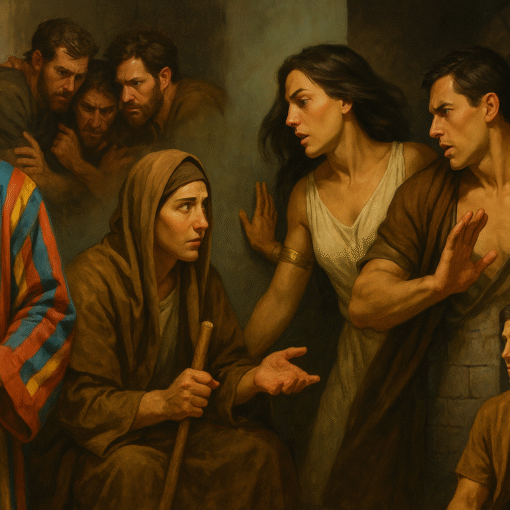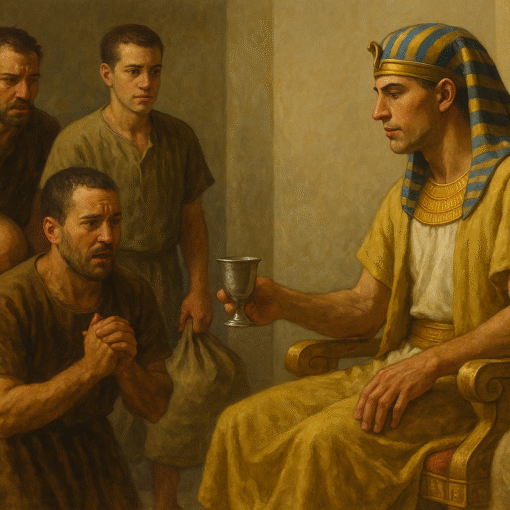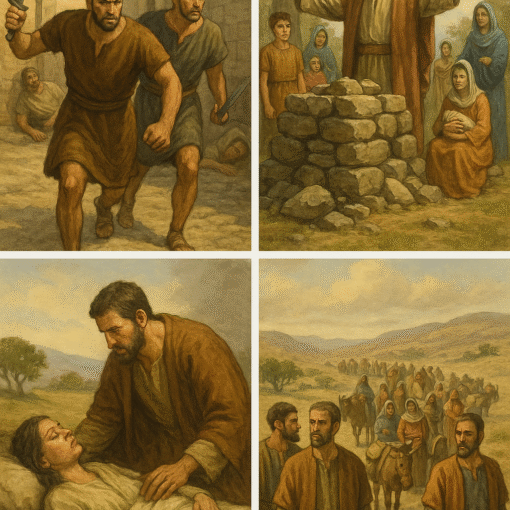Overview of Leviticus 5
Leviticus 5 continues the laws concerning sin offerings, particularly sins of ignorance or omission.
-
Unspoken Witness (5:1): If someone knows testimony and refuses to speak, they bear guilt.
-
Unclean Things (5:2–3): Touching an unclean animal, carcass, or human uncleanness unknowingly makes a person guilty once they realize it.
-
Oaths (5:4): Rash vows or careless oaths, when remembered, bring guilt.
-
Confession & Offering (5:5–6): The guilty must confess and bring a female lamb or goat for a sin offering.
-
Concessions for the Poor (5:7–13): If unable to afford a lamb, two turtledoves or pigeons may be offered—one for a sin offering, the other for a burnt offering. If unable even for that, a tenth of an ephah of fine flour may be offered, though without oil or frankincense.
-
Trespass Offering (5:14–19): If a soul sins against the LORD by ignorance in holy things (such as withholding tithes or misusing offerings), he must bring a ram, valued in silver, as restitution plus an added fifth, and a trespass offering for atonement.
Overview of Leviticus 6
Leviticus 6 continues with more detail on trespass and offerings:
-
Trespass Against Others (6:1–7): If someone lies, steals, cheats, finds lost property and lies about it, or swears falsely, he must restore what was taken, add a fifth part more, and bring a trespass offering (a ram). Forgiveness comes after restitution and sacrifice.
-
Law of the Burnt Offering (6:8–13):
-
The burnt offering must remain on the altar all night.
-
The priest shall wear linen garments to remove the ashes.
-
The fire must never go out—it is to burn continually on the altar.
-
-
Law of the Meat (Grain) Offering (6:14–23):
-
The sons of Aaron present it before the LORD. A memorial handful is burned, the rest belongs to the priests.
-
Only males among the priests may eat it, unleavened, in a holy place.
-
When a priest is anointed, he offers a continual grain offering (morning and evening). This one must be wholly burnt.
-
-
Law of the Sin Offering (6:24–30):
-
The sin offering is slain in the holy place where burnt offerings are killed.
-
The priest that offers it eats it in the holy place (except when blood is brought into the tabernacle).
-
Anything touching the flesh of the offering becomes holy. Earthen vessels used must be broken, and brazen vessels scoured and rinsed.
-
If blood is brought into the tabernacle for atonement, the sacrifice is wholly burned, not eaten.
-
Themes
-
Guilt and Confession: Sin must be acknowledged and confessed.
-
Restitution: Offenses against God and man required restoration plus an added penalty.
-
Substitutionary Sacrifice: Forgiveness was through the offering of a substitute life.
-
Holiness: Even the vessels and garments involved became holy, pointing to God’s separateness.
-
Continual Atonement: The altar fire never went out, showing the continual need for sacrifice and God’s ongoing provision.



